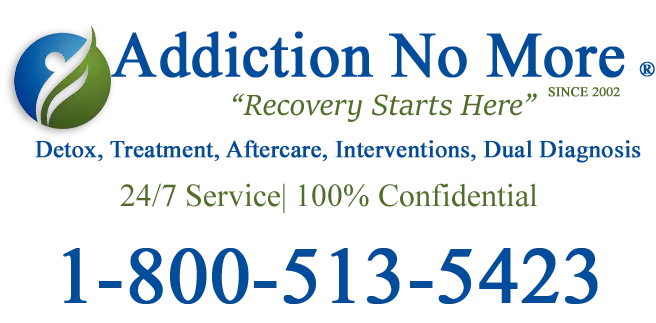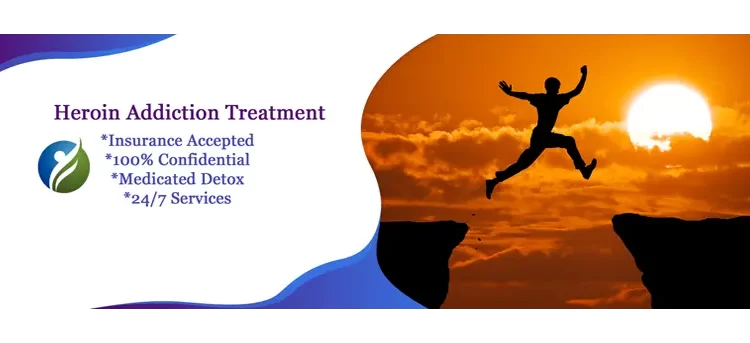Heroin Addiction Treatment
Heroin is a highly addictive drug, and almost 1/4 of the people who try heroin become addicted to it. Heroin has a physical and mental dependency that needs to be handled while in treatment. Once an addiction has developed, a user will do just about anything to get more of the drug, even if it risks their job, health, relationships, and personal integrity.
Specialized treatment centers for heroin addiction provide effective therapy while also providing support for the heroin user in need of rehabilitation. The best treatment facilities for heroin will offer different types of treatment models and detox options for the person who is suffering from the adverse effects of heroin. The main focus of treatment is on the person’s recovery. Helping the family through support and groups is also part of the program. Locating the best rehab for heroin addiction is the first step toward a long-lasting life without the need for the drug.What happens in treatment for heroin addiction is dependent on usage habits, the length of use, and usage levels. Recovery from heroin addiction solely depends on your ability to understand and apply what you have learned in treatment when confronted with life challenges. It is sometimes beneficial for the client to go to treatment further away from home. Getting away from temptations and friends who may still be using is often better for many people. Clients who go to rehab in another state also have a harder time leaving treatment early as well. Depending on the situation, our counselors may suggest looking for substance abuse programs that are a plane flight away.
Please contact us by phone for immediate assistance. This is a necessary step in beginning the recovery process for yourself or a loved one. Our addiction treatment specialists and staff have over 25 years of experience in helping people find effective and affordable treatment for all addictions. What you tell us is completely confidential. We are HIPAA compliant. We are here to answer your questions and to get you (or a loved one) into treatment today. For immediate intake, call us now.
1-800-513-5423
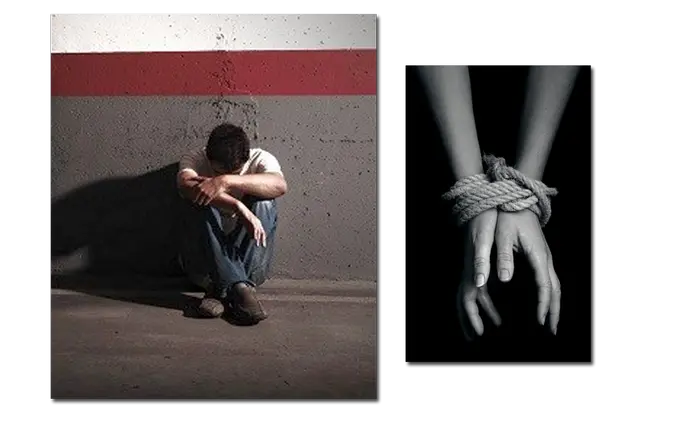
Am I addicted to heroin?
Not sure if you are addicted? Answer Yes or No.*Do you feel a strong desire to use heroin? (Y) (N)
*Do you use more heroin than you intended to use? (Y) (N)
*Have you continued to abuse heroin even though your mental or physical health has worsened due to usage? (Y) (N)
*Have there been relationship issues or social obligations that you haven’t followed through on due to heroin use? (Y) (N)
*When you discontinue the use of heroin, have you felt withdrawal symptoms such as vomiting, diarrhea, fever, muscle aches, sleeplessness, mood swings, excessive yawning, chills, or sweating? (Y) (N)
*Have you started using due to not wanting to be sick or go through the painful withdrawal process? (Y) (N)
*Do you need a greater dose to get the desired effect from heroin? (Y) (N)
If you have found some or all of these questions apply to your life, you should give us a call. Our addiction specialists can help you accurately determine if treatment is needed to help you overcome your addiction to heroin.
1-800-513-5423
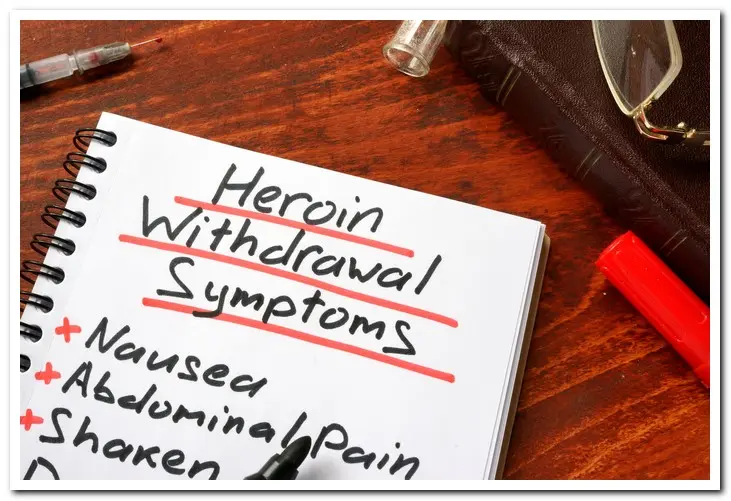
Heroin Withdrawal
Heroin withdrawal can be a very painful experience if done without medications. About 18 hours after the last intake of the drug, a person will start to feel anxious, as most heroin addicts know what is coming soon. For this reason, alone, many people suffering from heroin addiction find it easier to remain on the drug than try to stop on their own. As a person’s body begins to develop a tolerance, the need to use higher doses in order to achieve a consistent high is inevitable. This will potentially cause the addicted person to use more than their bodies are able to handle, resulting in an overdose. Additionally, depending on the purity level of the drug or if the mixture used contains other toxic chemicals, such as Fentanyl, the result can be the body rejecting the substance and going into shock. The threat of overdose is of real concern when you are taking street drugs such as heroin. Heroin purity levels can vary depending on how much cut is added to the drug to stretch it out for resale.
Longterm Heroin Use Side Effects
*Liver disease
*Infectious (Hepatitis, HIV, etc.)
*Kidney disease
*Bacterial infections
*Collapsed veins
*Pneumonia
*Abscesses
*Organ damage
Effects of heroin withdrawal: These symptoms typically begin between 6-24 hours after last use and reach their peak between 48-72 hours
*Flu-like symptoms
*Runny nose
*Watery eyes
*Chills
*Excessive sweating
*Vomiting and diarrhea
*Severe abdominal cramps
*Muscle and joint pain
*Excessive restlessness
Effects of heroin overdose: These factors can potentially lead to heroin overdose. Overdosing on heroin is a medical emergency and, if not immediately treated, can result in death. The following are signs that can indicate that an individual has overdosed on heroin:
*Nausea and vomiting
*Seizures
*Slow, shallow breathing
*Lips turning blue
*Very slurred speech
*Weakening pulse
*Unconsciousness
*Unresponsiveness
*Heart attack
*Stoke
*Coma
Longterm Heroin Use Side Effects
*Liver disease
*Infectious (Hepatitis, HIV, etc.)
*Kidney disease
*Bacterial infections
*Collapsed veins
*Pneumonia
*Abscesses
*Organ damage
Effects of heroin withdrawal: These symptoms typically begin between 6-24 hours after last use and reach their peak between 48-72 hours
*Flu-like symptoms
*Runny nose
*Watery eyes
*Chills
*Excessive sweating
*Vomiting and diarrhea
*Severe abdominal cramps
*Muscle and joint pain
*Excessive restlessness
Effects of heroin overdose: These factors can potentially lead to heroin overdose. Overdosing on heroin is a medical emergency and, if not immediately treated, can result in death. The following are signs that can indicate that an individual has overdosed on heroin:
*Nausea and vomiting
*Seizures
*Slow, shallow breathing
*Lips turning blue
*Very slurred speech
*Weakening pulse
*Unconsciousness
*Unresponsiveness
*Heart attack
*Stoke
*Coma
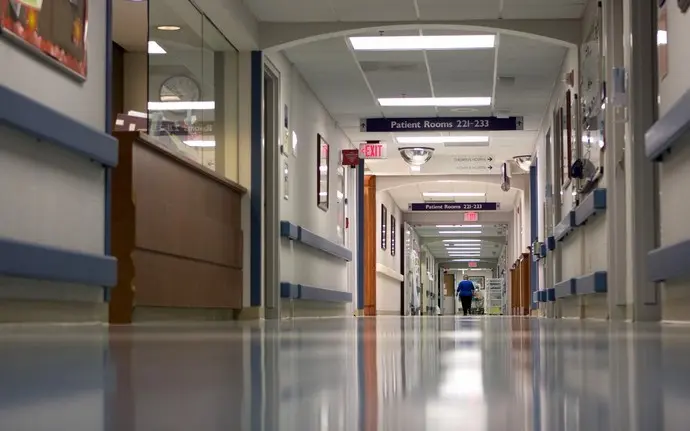
Heroin Detox
The facility chosen for treatment and the type of heroin detox they have available for heroin withdrawal will be a determining factor in which type of detox you will have. Some facilities will use medicated assisted treatment (MAT) which uses medicines like Buprenorphine or Methadone. This detox process involves replacing the heroin in your system with a synthetic substitute that can be stepped down to make for a painless withdrawal process. Some programs will offer a natural remedy for the detox process. There are no replacement drugs offered or ingested to stop the painful withdrawal process. The most common detox for heroin is a medically assisted withdrawal.
How long does inpatient heroin treatment last?
Once the detox is completed and the withdrawal symptoms are alleviated, a person is now ready for the next phase of treatment. Different programs can offer different lengths of stay for inpatient heroin treatment. The typical time needed to overcome a heroin addiction can range from 28 days to 6 months, depending on the needs of the client and the level of the addiction that is in question. There are many different options available for those seeking help with their heroin addiction. Most programs will offer many different therapy models to tailor make a specific treatment plan for the individual seeking treatment for their addiction. Call us toll-free to find out about the options available to you.
Once the detox process has completed its course and the client is feeling better, it is time to start the next phase of treatment. This includes one-on-one therapy, group therapy, classes, and social and physical activities. You will learn coping techniques, including deep breathing, yoga, and meditation, that will aid in your recovery process. Most treatment centers offer sporting activities, art therapy, music therapy, journaling, and Church activities if requested.
Behavioral therapy options
The programs that offer treatment for heroin addiction can use different models of behavioral therapy in a residential setting or an outpatient clinic. Programs like contingency management use a voucher-based reward system to promote healthy living, and vouchers can be redeemed in the form of rewards or points based on negative drug testing and completion of program steps. Cognitive behavior therapy is one of the most common treatment models that centers use in conjunction with DBT and MRT.
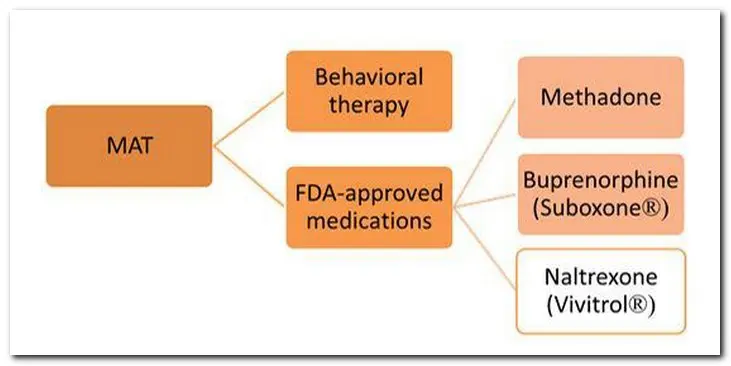
Buprenorphine (Subutex) is licensed as a partial opioid agonist. Specifically made to target the drug cravings without creating the high or side effects that other opioids create. The FDA approved Suboxone for the treatment of opioid addiction in 2002 making it the first medication available to be prescribed by qualified doctors through the Drug Addiction Treatment Act. This elevates the need for daily visits and specialized dispensing clinics. Suboxone is a combination of Buprenorphine and Naloxone, also known as Narcan (an opioid antagonist) taken orally or sublingually to prevent attempts of the patients to get high by injecting the drug. Naloxone will immediately induce painful withdrawal symptoms if injected. If taken orally as prescribed, the Naloxone is time-released and specifically designed not to induce symptoms of withdrawal. In February 2013, the FDA approved two generic forms of Suboxone, making this type of treatment much more affordable to people needing the drug.
Naltrexone ( Opioid antagonist. Naltrexone blocks the action of opioids, cutting off the receptor’s ability to process and intake heroin or other opioids. Naltrexone is non-addictive or sedating and will not result in a physical dependency on the drug. Clients have a hard time complying with this type of treatment and have limited effectiveness and daily dosage is required for this drug to remain active in the system. Vivitrol has recently received FDA approval for the treatment of opioid addiction and is administered in the form of a once-a-month injection. The hope of Vivitrol is that the compliance and longevity of treatment will be improved by eliminating the daily dosage.


Medicated Maintenance Programs
There has been significant scientific research that medicated treatment of opioid addiction will increase the program completion rate for people suffering from heroin addiction. Pharmacological treatment for heroin addiction has been shown to also decrease drug use as well as lower infectious disease transmission and quell the need for criminal activities to support a heroin habit.
The medications that have been developed to treat opiate addiction work very similarly to the addictive drug. They access the same receptors relieving the painful withdrawal symptoms while stopping the cravings for the addictive drug.
There are three classifications of the medications that are used to treat heroin addiction.
1) Agonist: Activated the opioid receptors
2) Partial agonist: Also activating the opioid receptors but at a lesser rate
3) Antagonist: works to block the receptor and place a block so the reward effect from heroin or other opiates does not happen.
Depending on the patient’s specific needs determine what type of medication is used to treat the addiction.
Methadone: Slow-acting opioid agonist. Methadone is taken in an oral form, either in liquid or in pill form, so it reaches the brain in lower doses, dampening the high while preventing painful withdrawal symptoms. Methadone has been an acceptable form of medicated treatment for heroin addiction since the 1960s and is still in use today. Methadone is only available at inpatient and outpatient clinics where it is dispensed daily to their clients.
There are three classifications of the medications that are used to treat heroin addiction.
1) Agonist: Activated the opioid receptors
2) Partial agonist: Also activating the opioid receptors but at a lesser rate
3) Antagonist: works to block the receptor and place a block so the reward effect from heroin or other opiates does not happen.
Depending on the patient’s specific needs determine what type of medication is used to treat the addiction.
Methadone: Slow-acting opioid agonist. Methadone is taken in an oral form, either in liquid or in pill form, so it reaches the brain in lower doses, dampening the high while preventing painful withdrawal symptoms. Methadone has been an acceptable form of medicated treatment for heroin addiction since the 1960s and is still in use today. Methadone is only available at inpatient and outpatient clinics where it is dispensed daily to their clients.
Buprenorphine (Subutex) is licensed as a partial opioid agonist. Specifically made to target the drug cravings without creating the high or side effects that other opioids create. The FDA approved Suboxone for the treatment of opioid addiction in 2002 making it the first medication available to be prescribed by qualified doctors through the Drug Addiction Treatment Act. This elevates the need for daily visits and specialized dispensing clinics. Suboxone is a combination of Buprenorphine and Naloxone, also known as Narcan (an opioid antagonist) taken orally or sublingually to prevent attempts of the patients to get high by injecting the drug. Naloxone will immediately induce painful withdrawal symptoms if injected. If taken orally as prescribed, the Naloxone is time-released and specifically designed not to induce symptoms of withdrawal. In February 2013, the FDA approved two generic forms of Suboxone, making this type of treatment much more affordable to people needing the drug.
Naltrexone ( Opioid antagonist. Naltrexone blocks the action of opioids, cutting off the receptor’s ability to process and intake heroin or other opioids. Naltrexone is non-addictive or sedating and will not result in a physical dependency on the drug. Clients have a hard time complying with this type of treatment and have limited effectiveness and daily dosage is required for this drug to remain active in the system. Vivitrol has recently received FDA approval for the treatment of opioid addiction and is administered in the form of a once-a-month injection. The hope of Vivitrol is that the compliance and longevity of treatment will be improved by eliminating the daily dosage.
All of these medications listed above work best if they are accompanied by a treatment program that is either inpatient or outpatient, depending on the needs of the client. These drugs are only a temporary fix for short time use only. Learning how to overcome addiction to heroin or other opioids can only be done through therapy and hard work.

What happens after treatment has been completed?
The main goal of a treatment program for addiction is to have their patients become sober and productive members of society. When you are checking out of your treatment facility, you will have a strict plan of action for your aftercare program. This aftercare program will need to be followed through to its entirety to ensure that there is support and continued care after the client returns home from the program. Aftercare is the make or break of any treatment program, following through with treatment will continue the growth of the individual through sober activities, continued care, and counseling. Our counselors can help you or a loved one get help for addiction to heroin today. Give us a call now. We can help you or someone you love find the best drug rehab center for heroin addiction today. Addiction No More is an Addiction Treatment Center locator service. For immediate service, please call one of our counselors 24/7.
Summary
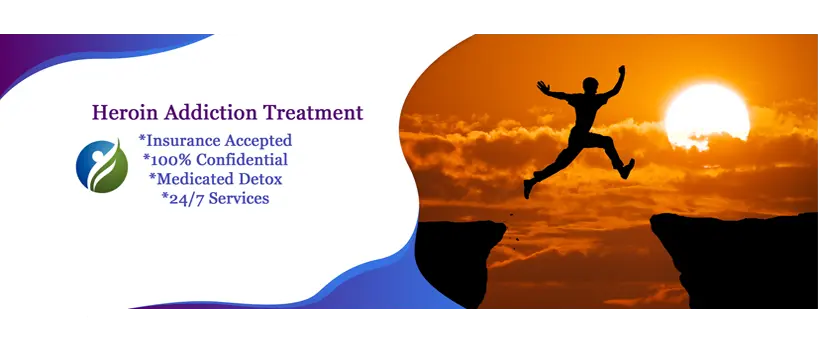
Service Type
Heroin Addiction Treatment
Area
Nationwide treatment for heroin addiction
DescriptionWe can help you find a heroin addiction treatment program in your state today. If you are looking for a heroin detox center we can also help you find a detox center in your state as well. Give us a call at 1-800-513-5423 today.
